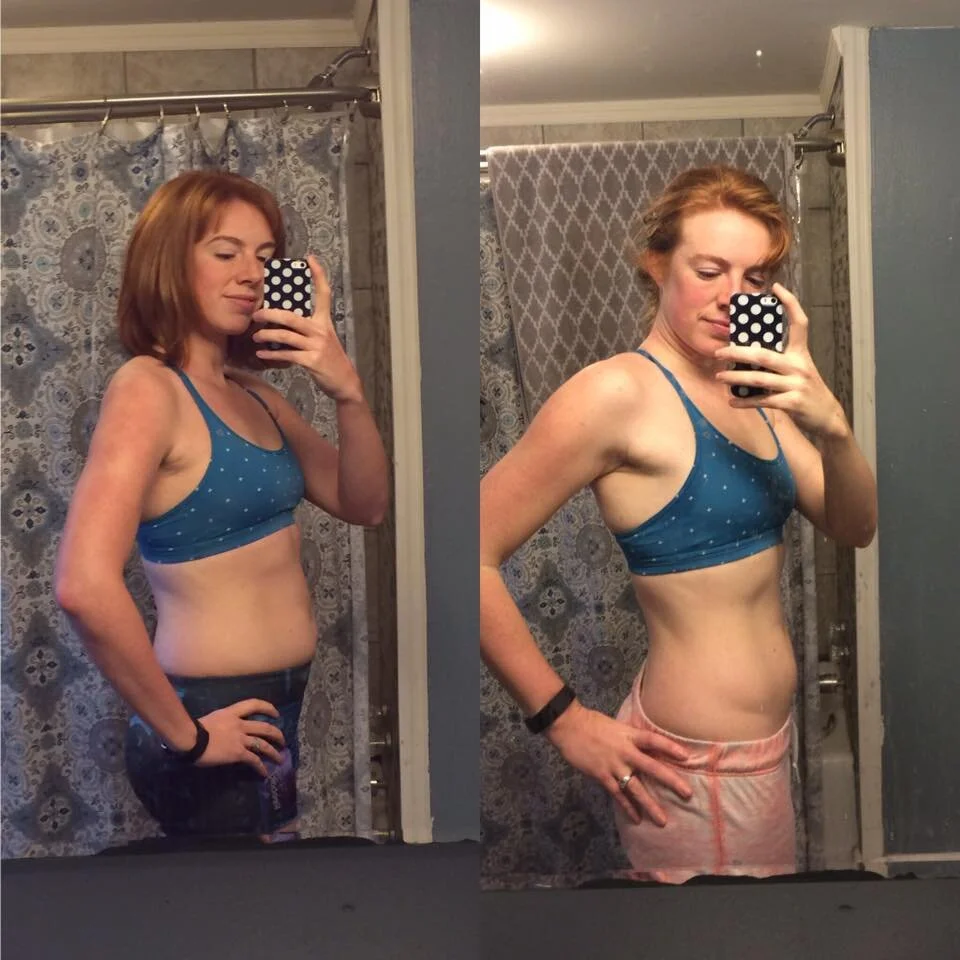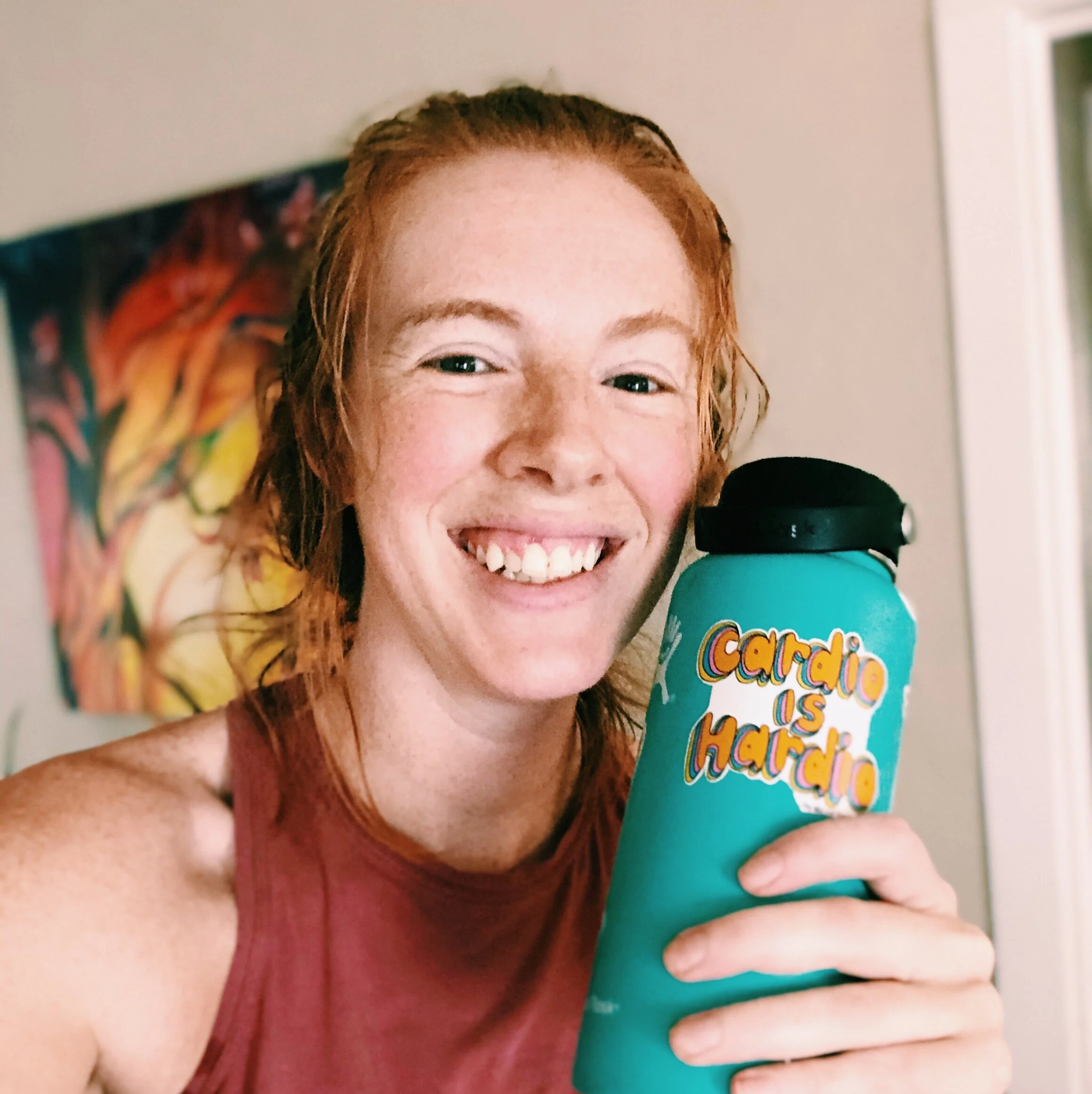If you're anything like me, a good portion of your life was spent getting on and off different diet and exercise regimens. They would work for a little while, and maybe even give great results, but it the end you stopped doing the work.
A few years ago I got super fit by doing one-hour a day workouts, plus 3 runs each week, and I prepped and planned all my meals. I lost inches, I gained muscle definition, and I lost weight, for sure. I also lost hours of sleep, and wen the 60-day program was over, the only thing I could think about was "WOW! I'm so grateful that I can eat fun food again, and I don't have to wake up so early every day"
Of course once I stopped the gains went away. I gained most of the weight and inches back, because I wasn't dedicating all the time and effort to losing weight and working out. For me, 7+ hours a week of working out, plus micromanaging all my food was not sustainable.
Before (left) and after (right) a 60-day intense workout and diet plan, combined with half marathon training. Yup! The results were crazy! Aaaaand… they didn’t even last a month.
This is the big problem with most diets, or even habits that we try to change. Our society has programmed us with this all-or-nothing mindset. You're either on the wagon or off of it. You're either giving up carbs cold turkey, or you're eating as many as you like. This lack of flexibility can make it super challenging to stick to a specific plan, and makes it all the more likely that you'll eventually give up, deciding that it's just too hard or takes up too much time.
So how do we make wellness sustainable?
One rule of thumb that can help here is the forever rule: Don't commit to changing anything that you wouldn't want to do for the rest of your life.
It sounds big. Right? Especially if you're still triggering that all-or-nothing mindset. What? No carbs FOR THE REST OF MY LIFE?
That's not what I mean though. I mean that if you are not willing to give up carbs for the rest of your life, then don't build a no-carb diet into your wellness plan. Instead, set a rule you are willing to commit to. Maybe something like no carbs after the sun goes down. No carbs on weekdays. Only healthy complex carbs. (Carbs is just the example here, btw. You can totally keep eating carbs and still be healthy!)
If you're not willing to commit to hitting the gym for an hour every day FOR THE REST OF YOUR LIFE, don't make that a keystone of your plan either. Instead, revise it to something you think you could do forever. Maybe a daily walk after dinner. Maybe it's 2-3 gym sessions a week.
One way I know my health habits are sustainable? I’m 6th months pregnant and (aside from my belly) my body hasn’t changed much. Because the healthy practices I’ve committed to still happen all the time!
By putting all your wellness plans through the forever-filter, it becomes pretty obvious right away what is sustainable and what isn't. And that's a great thing! The pillars of your personal wellness plan should be things you can continue doing throughout your life so that you can sustain your health and happiness well into your old age.
No matter how hard you are willing to push yourself in the short-term, any gains or improvements you see will likely disappear once you stop engaging in those new habits, so make sure you set realistic goals from the outset. And don't be surprised if your perspective changes as you start to feel healthier and more energized. All of a sudden committing to an hour-a-day workout might seem do-able!
Go with what you know, and allow the process to build organically. After all, natural evolution is by far the most sustainable.




